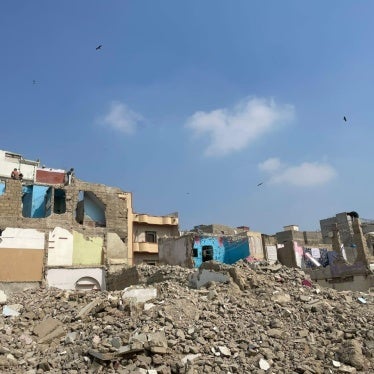Pakistani government actions against the Pakistan Tehrik-e Insaf (PTI), the political party of former Prime Minister Imran Khan, signal an intensifying crackdown on dissent.
Last Saturday, hundreds of PTI supporters, many of whom had traveled from Khyber Pakhtunkhwa, where the party controls the provincial government, violently clashed with police during a march outside Islamabad to protest Khan’s imprisonment. Dozens of protesters and police were reportedly injured, with one officer dying due to the injuries, and over 500 people arrested, including many opposition political party supporters and people protesting peacefully. Many have been charged under vague and overbroad laws prohibiting rioting and creating threats to public order.
Police reportedly used tear gas and blocked roads to prevent the march. Officials have alleged that protesters fired on police. Days earlier the authorities had cut off mobile internet to disrupt the march.
A journalist in Islamabad who witnessed the protests told Human Rights Watch, “The entire city was shut down with [shipping] containers, internet and mobile phone signals turned off and both the police and protesters pelting each other with stones—the entire Islamabad looked like a war zone.”
In the weeks before the march, police had arrested a number of PTI legislators and party leaders in night raids.
Khan, who served as prime minister from 2018 to 2022, was arrested in May 2023. PTI supporters then responded with violent protests—hurling rocks and Molotov cocktails, burning buildings and ambulances, and in a few cases, shooting on police. Khan was convicted and imprisoned on charges of corruption and disclosing state secrets in August 2023 and barred from contesting the February 2024 general elections. In those elections, candidates backed by Imran Khan won the most seats but not enough to form a government on their own.
Pakistani authorities should release those held for peaceful protest or for supporting the political opposition, respect the due process rights of all those detained, and respond to violence during protests in accordance with international human rights standards. Fundamental guarantees of the right to dissent and peaceful protest should not become casualties in this standoff.









